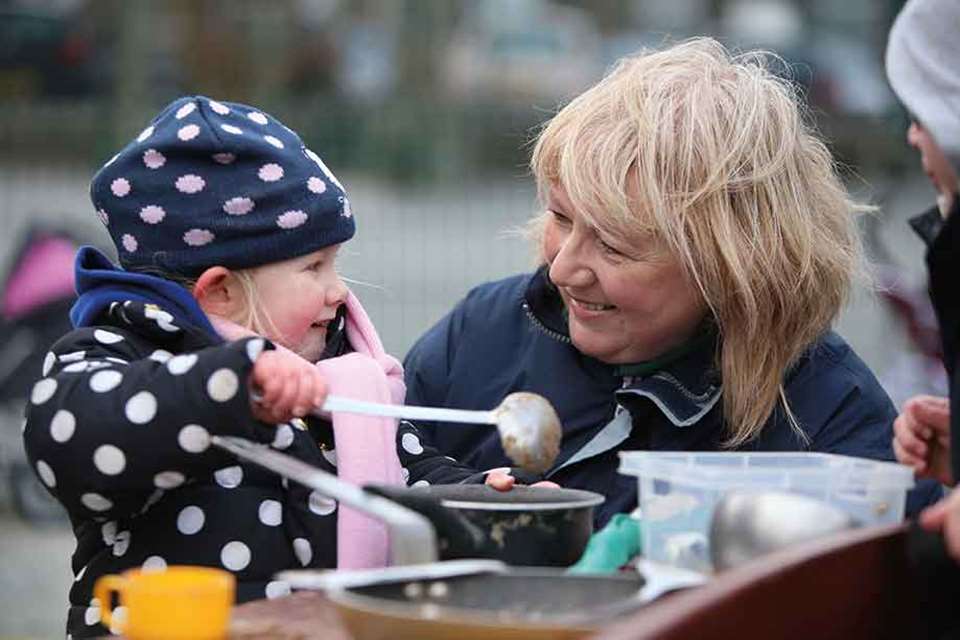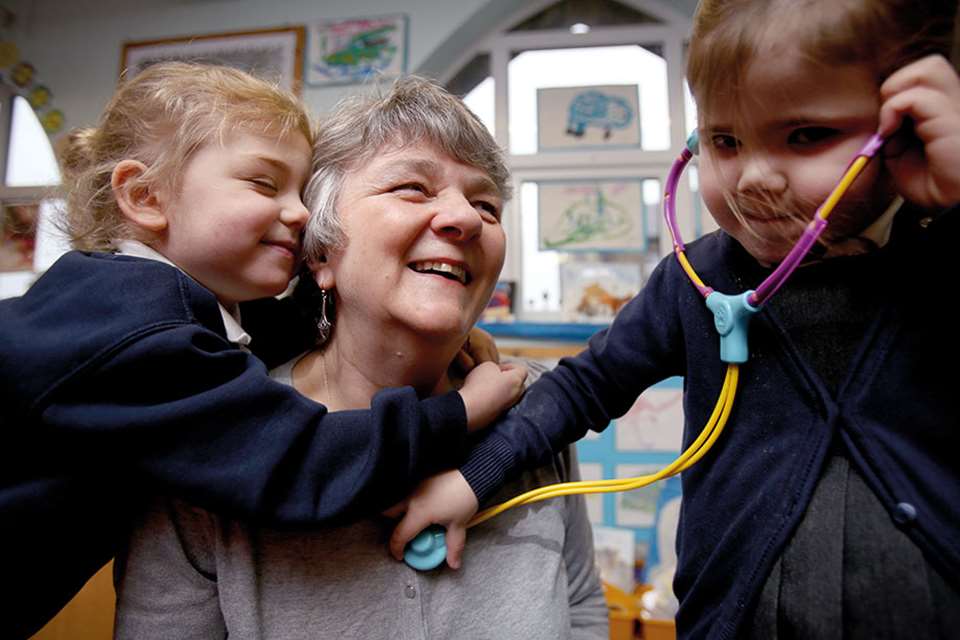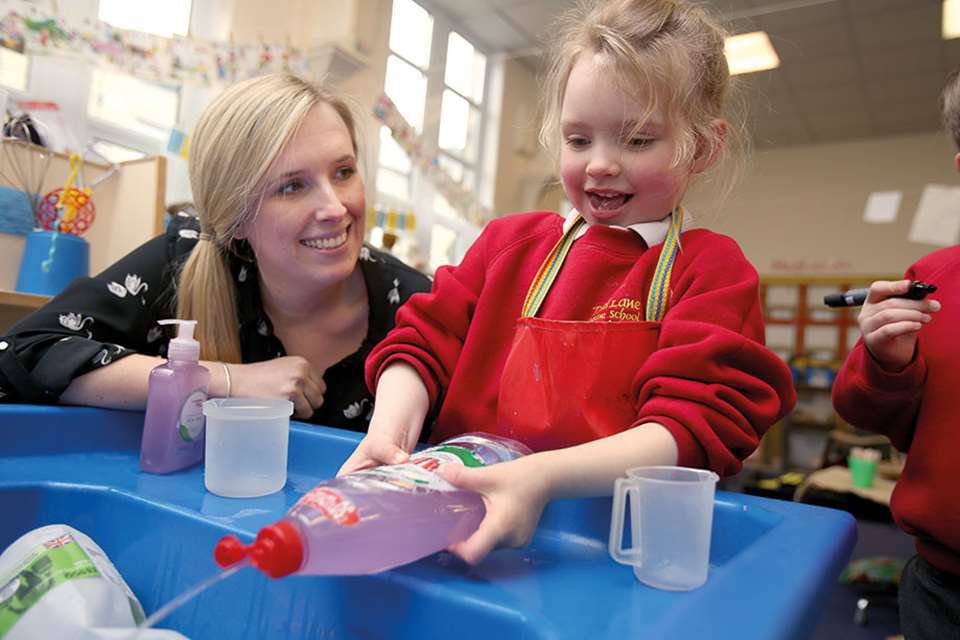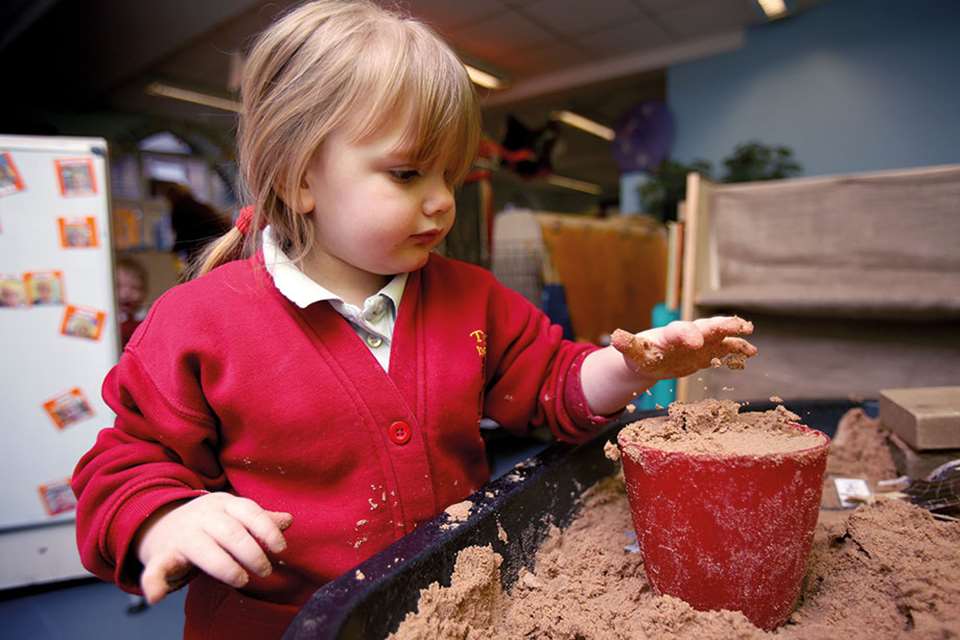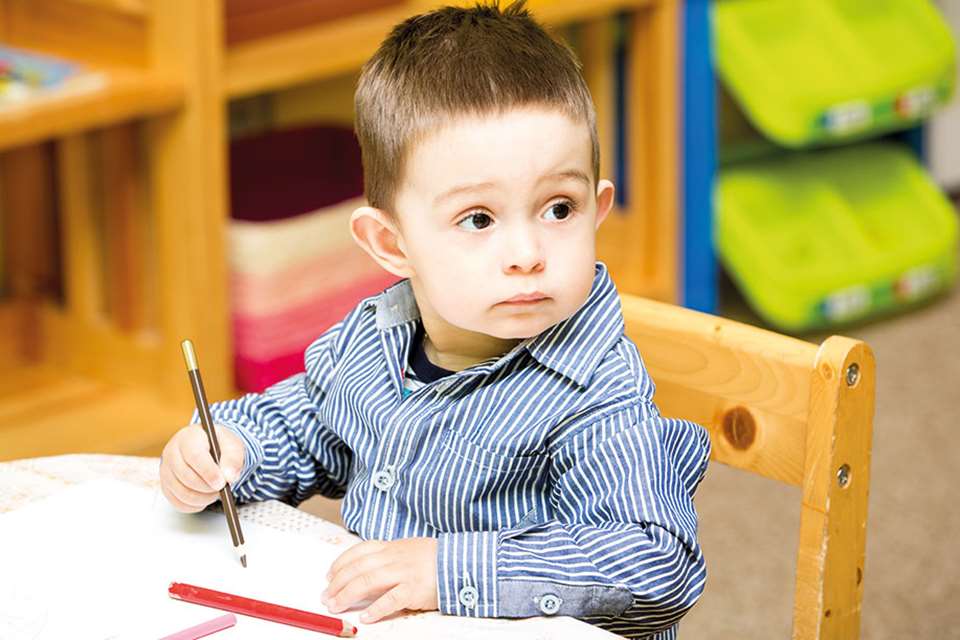EYFS Best Practice in Schools - Tense times
Jan Dubiel
Monday, June 26, 2017
The approach to teaching literacy and maths in Reception is a key concern of teachers and EYFS leaders, explains Jan Dubiel, one of the authors of the recently published Hundred Review
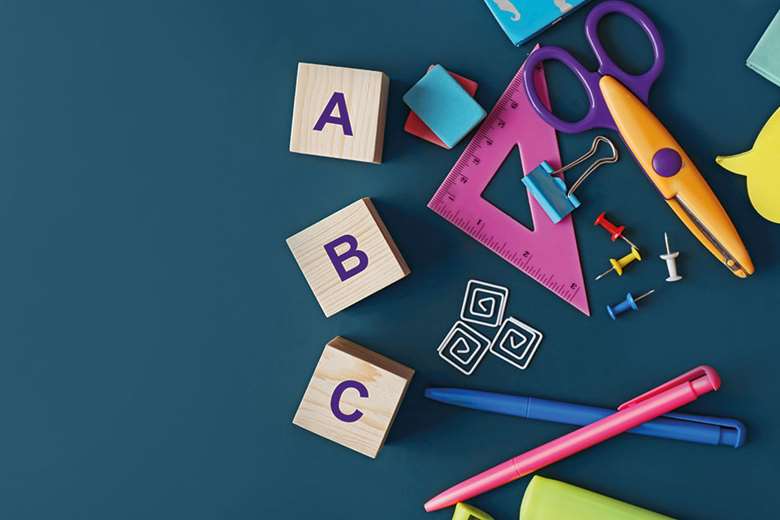
This year, Early Excellence carried out a review of Reception (YR), documenting the findings in The Hundred Review.(1)
The review was partly in response to growing concerns among YR teachers and EYFS leaders about the quality of practice in Reception, and partly in response to the Teaching Schools Council’s report, Effective Primary Teaching Practice.(2) Published at the end of 2016, this report provoked much debate within the EYFS community due to some of its controversial conclusions about ‘best practice’ in YR.
The Hundred Reviewcomprised an online survey, which received more than 4,000 responses, a series of national focus groups, visits to 44 schools and an academic review of what research tells us about pedagogical practice and outcomes in YR.
Its central aims were to establish a clear picture of current YR practice, what outcomes YR teachers strive towards, any pressures on achieving these and how they could be resolved.
In the current climate of increasingly fevered discussion about the most appropriate approaches to teaching and learning in YR, the review is a robust, evidence-led and significant document that provides a comprehensive and authoritative view of the realities and challenges around appropriate pedagogy in YR.
The review focused on YR in England as it is constantly caught between the pressures of a ‘school readiness’ agenda that suggests a need for greater formality, and the pressures of what is sometimes described as the ‘schoolification of childhood’, in which YR is perceived as an emotionally toxic place for young children.
Although neither phrase is helpful or accurate, it is important to acknowledge the origins of these tensions, and the non-educational reasons that children in England start ‘school’ aged four or five rather than six or seven years old, as they do in most other countries. YR can end up being torn between two educational worlds as both the end of the statutory EYFS phase and the beginning year of primary or infant school.
While the review focused on YR, for these reasons, some of its findings were equally applicable to other age groups within the EYFS. The problems appeared to be more extreme in YR, and exacerbated by its location within school, but what emerged was a belief that a ‘drip down’ pressure was also taking place. As a result, some practitioners working with younger children expressed the same concerns as YR teachers.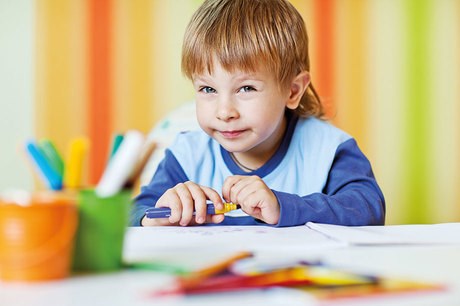
LITERACY AND MATHS
During the collection of evidence from the various streams, it became clear that one of the most consistent concerns was the role, understanding and status of the Specific Areas of Literacy and Mathematics. Participants in the review identified three main features of the concern:
Specific Areas of Literacy and Mathematics dominate content in YR classes
The EYFS Statutory Framework is quite clear how the seven Areas of Learning and Development should be covered: ‘There are seven areas of learning and development that must shape educational programmes in early years settings. All areas of learning and development are important and inter-connected. Three areas are particularly crucial for igniting children’s curiosity and enthusiasm for learning, and for building their capacity to learn, form relationships and thrive. These three areas, the prime areas, are: communication and language, physical development, personal, social and emotional development.’(3)
Participants in the review broadly shared this view: ‘In particular, the Prime Areas of Learning were believed to be especially important for children within YR and were consistently identified as the “three most important areas of learning” in YR, providing the appropriate foundations for engagement with all other current, and future learning.’(1)
However, when analysing their own practice, a different, less balanced picture emerged: ‘Whilst 58% of participants in The Hundred Reviewsurvey believe that in YR, all seven Areas of Learning and Development set out in the EYFS Statutory Framework are of equal importance, 84% of respondents do not believe that these areas are presently given equal coverage in classroom practice. Over 90% of respondents stated that Literacy and Mathematics are given greatest prominence within the YR curriculum (Literacy 95%, Maths 91%). This view was endorsed by a number of Teachers and Practitioners participating in The Hundred Review focus groups; “there is an over focus on Literacy and Maths”.’(1)
Expectations in literacy and maths are too high
Aligned to this was a general sense that the ‘pitch’ and expectations of outcomes in these two areas, and in particular the Early Learning Goals (ELGs) that constitute the statutory ‘Good Level of Development’ for the end of YR, are inappropriate for the age of the children. In contrast, there was a general consensus that the ELGs for the other five Areas were broadly appropriate: ‘The outcomes for the Prime Areas of Learning and Development were also considered to be appropriately pitched for children in YR. Survey responses indicated agreement with the pitch of PSED by 95.9% of respondents, for Communication and Language 94.2% and for Physical Development 92.1%.’(1)
However, in the case of maths and literacy: ‘Serious and widespread concerns were expressed within The Hundred Review in relation to the ELG outcomes for Literacy – Writing and Mathematics – Number. Both these sets of ELG statements were felt to be pitched at a very high level for children of Reception age, with the result that this compromised and contradicted practice which was supportive of good outcomes. Survey results indicated that 40.3% of respondents considered the ELGs for Literacy were inappropriate, and 34.7% considered that this was true of the ELG expectations for Mathematics.’(1)
What is perceived to be an unrealistic expectation for the end of the EYFS was also believed to be responsible for a gradual ‘ratcheting up’ of expectations for younger children.
There is little understanding of how early literacy and maths are taught and learned
Permeating the review was concern about how learning and teaching were understood – or more likely misunderstood – by those outside of the EYFS. Early childhood pedagogy, and how it is most effectively supported in EYFS settings, is seen as a key area in which leaders, and policy-makers, have insufficient knowledge and expertise. And it is this ignorance that was blamed for the inappropriate and simplistic views of practice, culminating in the ‘drip down’ effect on expectations and outcomes that then dominate EYFS practice.
While this is true of many aspects of provision, it was felt that this was particularly pronounced in literacy and maths, given their high profile and the extent to which they provide the basis for accountability. Practitioners reported a complete commitment to helping all children achieve in these two areas, but also voiced frustration that how this was achieved in the EYFS in general and YR in particular was not acknowledged or recognised.
Research cited as part of the review was clear that successful outcomes in both literacy and maths are dependent on children having other knowledge, skills and learning behaviours. However, ignorance of these among school leaders invariably appears to have led to settings favouring a more ‘didactic’ and exclusively formalised model which, ironically, is less likely to secure long-term success.
The review reports: ‘The presence of specific curriculum outcomes, especially those in Literacy and Mathematics, often had the tendency to pressurise YR into a more specific and overwhelmingly didactic approach, regardless of the statutory requirements of the EYFS Framework and the developmental level of individual children. In many cases this was felt to contradict effective YR practice and have a potentially negative impact on overall outcomes including, ironically, those for Literacy and Mathematics.
‘The perceived educational cultural folklore that “earlier is better”, a phenomenon that is fundamentally challenged by current research, was often stated to be a key source of increased pressure towards delivering specific YR outcomes.’(1)
CONCLUSION
One of the key conclusions of The Hundred Reviewestablishes both the tension this creates and the need to address it directly: ‘The need for children to have a good knowledge and understanding of the skills required for successful Literacy and Mathematics outcomes is unanimously supported by YR Teachers and Practitioners. However, in order for children to attain good outcomes in Literacy and Mathematics, a range of other contributory knowledge, skills, experiences and learning behaviours are equally important, and successful outcomes in these two areas of learning are dependent on more than the acquisition of formal skills. This counter-intuitive approach to early Literacy and Mathematics is often misunderstood or its importance not acknowledged, with a negative effect on the very outcomes that are being worked towards.’(1)
Jan Dubiel is national director of Early Excellence
REFERENCES
1. Dubiel J and Kilner D (2017) Teaching Four & Five Year Olds: The Hundred Review of the Reception Year in England. Early Excellence
2. Keeble R (2016) Effective Primary Teaching Practice.Teaching Schools Council
3. DfE (2017) Statutory Framework for the Early Years Foundation Stage. Setting the Standards for Learning, Development and Care for children from birth to five


